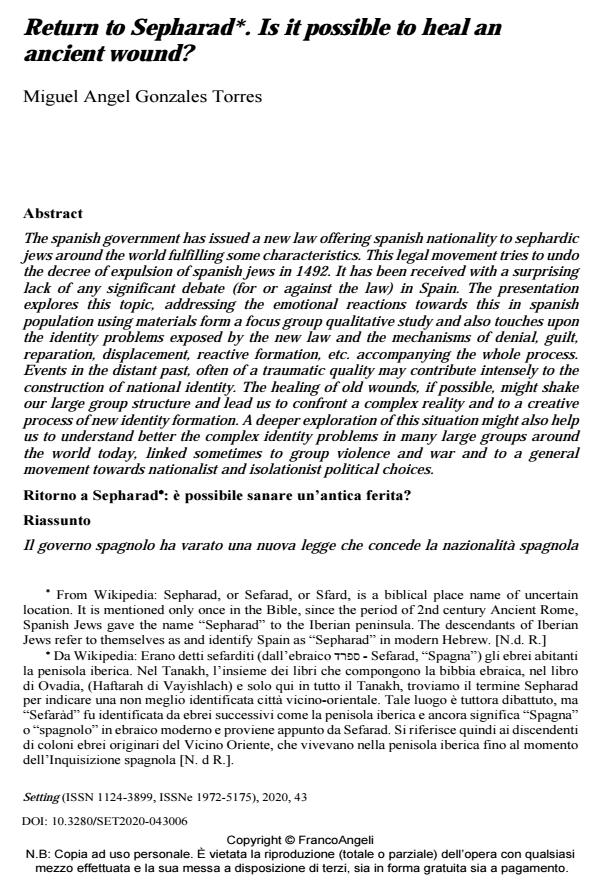Return to Sepharad. Is it possible to heal an ancient wound?
Journal title SETTING
Author/s Miguel Angel Gonzales Torres
Publishing Year 2020 Issue 2020/43
Language English Pages 14 P. 105-118 File size 234 KB
DOI 10.3280/SET2020-043006
DOI is like a bar code for intellectual property: to have more infomation
click here
Below, you can see the article first page
If you want to buy this article in PDF format, you can do it, following the instructions to buy download credits

FrancoAngeli is member of Publishers International Linking Association, Inc (PILA), a not-for-profit association which run the CrossRef service enabling links to and from online scholarly content.
The spanish government has issued a new law offering spanish nationality to sephardic jews around the world fulfilling some characteristics. This legal movement tries to undo the decree of expulsion of spanish jews in 1492. It has been received with a surprising lack of any significant debate (for or against the law) in Spain. The presentation explores this topic, addressing the emotional reactions towards this in spanish population using materials form a focus group qualitative study and also touches upon the identity problems exposed by the new law and the mechanisms of denial, guilt, reparation, displacement, reactive formation, etc. accompanying the whole process. Events in the distant past, often of a traumatic quality may contribute intensely to the construction of national identity. The healing of old wounds, if possible, might shake our large group structure and lead us to confront a complex reality and to a creative process of new identity formation. A deeper exploration of this situation might also help us to understand better the complex identity problems in many large groups around the world today, linked sometimes to group violence and war and to a general movement towards nationalist and isolationist political choices.
Miguel Angel Gonzales Torres, Return to Sepharad. Is it possible to heal an ancient wound? in "SETTING" 43/2020, pp 105-118, DOI: 10.3280/SET2020-043006